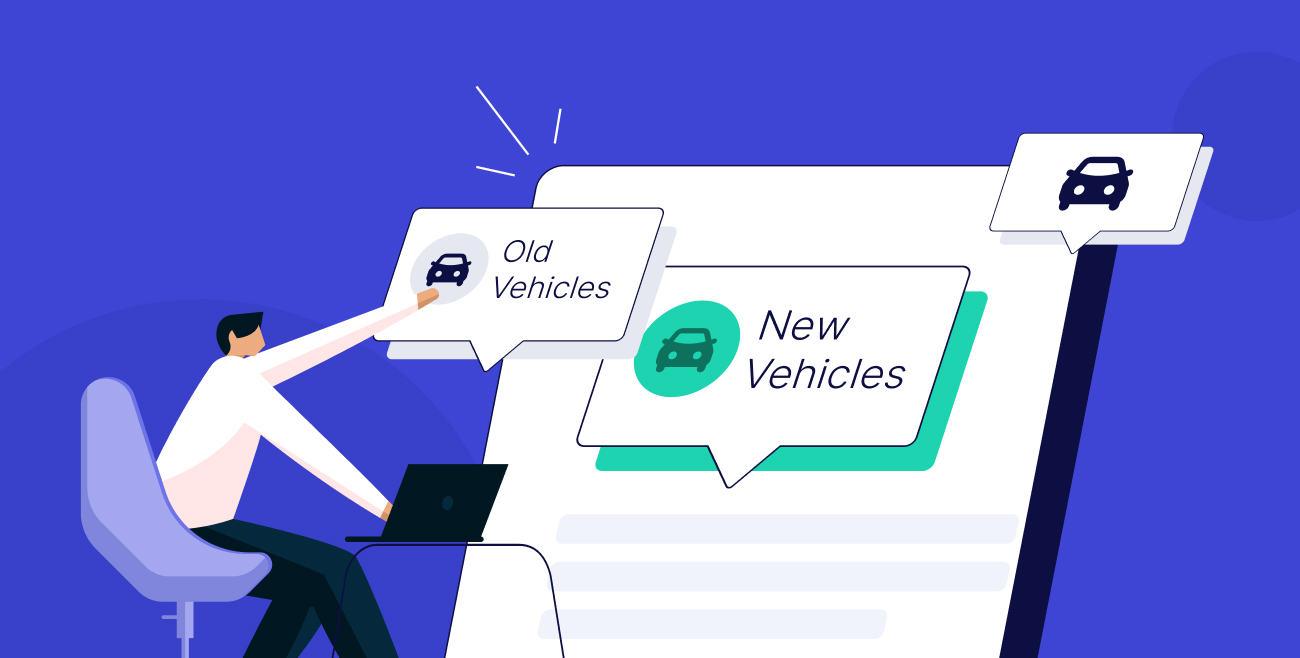
Table of Contents
Have you ever heard the saying, “We don’t inherit the Earth from our ancestors; we borrow it from our children?”
Sustainability is making choices today that ensure you can keep enjoying the things you have without messing things up for future generations. It’s about balance and foresight.
Now, consider the impact of our daily choices. Did you know the average passenger vehicle emits about 400 grams of CO2 per mile, totaling approximately 4.6 metric tons of carbon dioxide annually? This significant carbon footprint alone is a compelling reason to adopt sustainable practices.
Encouragingly, many leaders are recognizing this need. 75% of business leaders reported that their organizations have boosted investments in sustainability over the past year, with 20% noting a substantial increase.
As a non-emergency medical transportation (NEMT) provider, how can you help this cause while still operating a quality business?
Which sustainable practices are most effective for your fleets?
Transitioning to sustainable practices in fleet management is more critical than ever.
With growing environmental concerns and regulatory pressures, adopting eco-friendly strategies can help reduce your carbon footprint and operational costs.
Do More with Less
Handle more trips with fewer dispatchers on your payroll with Tobi.
Request a Demo1. Adopt Alternative Fuel Vehicles
Switching traditional internal combustion engine (ICE) vehicles to alternative fuel options like electric, hybrid, or compressed natural gas (CNG) can significantly reduce greenhouse gas emissions and air pollution.
For instance, electric vehicles (EVs) produce zero tailpipe emissions, which is great for air quality and public health. You could assess your current fleet to see which vehicles you might replace with greener options. Invest in the necessary infrastructure, such as EV charging stations or CNG refueling stations, and take advantage of government incentives and grants to help with the costs.
2. Implement Telematics and GPS Systems
Inefficient routing and lack of real-time data can lead to higher fuel consumption and emissions.
Telematics and GPS systems provide valuable insights into vehicle performance, driver behavior, and route optimization. Equip your vehicles with telematics devices to monitor speed, fuel consumption, and engine health. Use this data to identify patterns and areas for improvement.
Training drivers to use these systems effectively can also enhance their driving habits and reduce fuel consumption.
3. Regular Maintenance and Eco-Driving Training
Keeping your vehicles well-maintained and training drivers in eco-friendly driving techniques can lead to significant fuel savings and lower emissions.
Establish a rigorous maintenance schedule that includes regular checks on tire pressure, engine performance, and oil changes.
Develop training programs for drivers focusing on smooth acceleration, gentle braking, and maintaining steady speeds to improve fuel efficiency.
4. Optimize Routing and Scheduling
Unoptimized routes can lead to longer travel times, increased fuel consumption, and higher emissions.
Advanced routing software can help plan the most efficient routes by considering real-time traffic conditions and other variables.
Investing in this software helps you regularly review and update routes to ensure they remain efficient and effective.
5. Use of Renewable Energy
Relying on non-renewable energy sources for facilities and vehicle charging increases your overall carbon footprint.
Renewable energy sources like solar or wind power can significantly reduce this impact.
Install solar panels on depots and facilities to generate clean energy for daily operations and vehicle charging. Conduct energy audits to identify areas where you could integrate renewable energy.
6. Waste Reduction and Recycling Programs
Excessive waste generation and improper disposal contribute to environmental degradation.
Implementing waste reduction and recycling programs helps manage resources more efficiently and reduces environmental impact.
Set up recycling bins and programs for vehicle parts, office supplies, and other materials.
Reduce paper usage by adopting digital solutions for documentation and communication.
7. Engage in Carbon Offsetting
Some emissions are unavoidable, but carbon offset programs can help mitigate their impact.
These programs fund projects that reduce or capture greenhouse gases, such as reforestation or renewable energy projects.
Partner with reputable carbon offset programs to invest in projects that align with your sustainability goals.
Regularly track and report emissions to understand the impact and effectiveness of offset initiatives.
8. Government Incentives and Compliance
Government incentives can provide financial support for adopting sustainable practices, while compliance with environmental regulations ensures you avoid penalties and contribute to broader sustainability goals.
Stay informed about available government incentives and apply for grants and subsidies.
Regularly review and update practices to ensure compliance with local, state, and federal environmental regulations.
9. Stakeholder Engagement and Reporting
Engaging with stakeholders about your sustainability efforts can enhance your reputation and build trust.
Transparent reporting on sustainability metrics demonstrates commitment and accountability.
Develop communication strategies to inform stakeholders about your initiatives and progress. Regularly publish sustainability reports detailing achievements, challenges, and future goals.
10. Continuous Improvement and Innovation
Sustainability is a continuous journey that demands improvement and innovation. Stay updated on industry trends and invest in new technologies to boost your sustainability efforts.
Keep track of the latest advancements in sustainable transportation and incorporate these innovations. Set up feedback systems to gather insights from drivers, staff, and stakeholders on your sustainability practices.
Want to Optimize Your Fleet’s Sustainability Efforts?
Tobi is an NEMT software that can significantly aid in your sustainability efforts.
This all-in-one solution streamlines operations, helping you implement sustainable practices quickly.
Tobi’s advanced route planning optimizes fuel usage and reduces unnecessary mileage, reducing your fleet’s carbon footprint. You can keep your fleet running efficiently with real-time data on vehicle performance.
Are you curious how Tobi can help you run your NEMT operations more efficiently? Request a demo for a free 30-day trial and experience how Tobi makes your business better at every turn.



